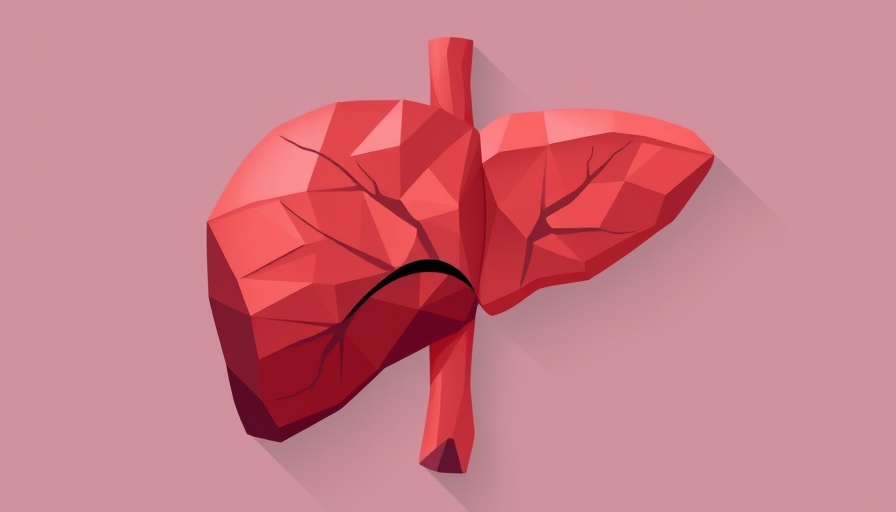
Understanding the Alcohol Crisis: An Unseen Health Emergency
Heavy drinking is becoming an increasingly alarming health crisis, particularly for women. Recent studies indicate that alcohol-related liver disease cases have more than doubled in the last 20 years in the U.S., with women facing a greater risk than ever before. According to Dr. Brian P. Lee, a prominent hepatologist, this increase signals a shift in drinking habits and a perilous trend toward higher rates of liver disease in the female population.
The Reality of Heavy Drinking
But what exactly constitutes heavy drinking? Surprisingly, it may be less than you think. The current definition classifies heavy drinking as more than 15 drinks per week for men and more than 10 for women. This means that for most women, consuming less than two alcoholic drinks per day can already put them at risk for liver issues. This shifting standard relates to social acceptance, as what once was perceived as heavy drinking has subtly become normalized. As noted by Dr. Lee, "Heavy drinking is so pervasive that it doesn’t seem heavy anymore, even though it’s causing liver failure and a host of other diseases."
The Alarming Rise of Liver Disease
The research findings are backed by an extensive analysis of over 40,000 adults from the National Health and Nutrition Examination Survey (NHANES) conducted from 1999 to 2020. The results revealed that the incidence of alcohol-related liver disease among heavy drinkers has drastically escalated, from nearly 2% in the early 2000s to over 4% in recent years. Furthermore, those grappling with metabolic syndrome—a collection of conditions that increase the risk of heart disease, stroke, and type 2 diabetes—also grew, rising from 26% to almost 38% among heavy drinking participants.
Why Are Women More Affected?
Women are drinking more and becoming diagnosed with liver disease at alarming rates. Several factors contribute to this concerning trend, including societal pressures, lifestyle choices, and biological differences. Research suggests that women metabolize alcohol differently than men, making them more susceptible to liver damage even at lower levels of intake.
Shifting Social Norms and Perception
The increase in alcohol consumption among women may also reflect changing social norms. As women gain more freedom and opportunities, instances of heavy drinking have risen. However, this newfound liberty may come with unintended consequences. Encouraging a balanced approach to social drinking and recognizing the health risks associated with excessive consumption is vital for these communities, especially in places like Central Ohio. For health-conscious adults aiming to improve their well-being, understanding these statistics and trends is crucial in promoting a healthier lifestyle.
Taking Action: Protecting Your Liver
Despite the startling statistics, there are actionable steps you can take to protect your liver. If you choose to drink, moderation is key—aiming to stay within the recommended limits of alcohol consumption can help reduce risk. Sharing your concern with friends, family, or healthcare providers can foster a supportive environment for healthier habits.
Furthermore, being mindful of triggers or social situations that encourage heavy drinking can help in making more informed decisions. Engaging in activities that don't revolve around alcohol, such as fitness classes, community events, or outdoor adventures, can provide enjoyable alternatives while enhancing overall well-being.
Common Misconceptions About Alcohol
Many people believe that heavy drinking is only characterized by binge drinking on weekends, but this is a myth. Long-term moderate consumption can also lead to health issues. Educating oneself about alcohol's effects and recognizing the signs of dependency can be crucial in mitigating these risks.
Final Thoughts: Embracing a Healthier Lifestyle
While the statistics surrounding alcohol-related liver disease are concerning, knowledge empowers change. In Central Ohio and beyond, we have the opportunity to shift perceptions around drinking and advocate for healthier habits. By focusing on self-care, community engagement, and informed choices, we can collectively work towards better health.
If you or someone you know is struggling with alcohol addiction or is concerned about their drinking habits, don't hesitate to seek help. Reaching out to local support groups or healthcare providers can provide access to vital resources.
 Add Row
Add Row  Add
Add 




Write A Comment